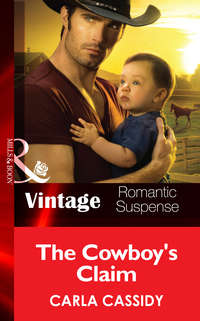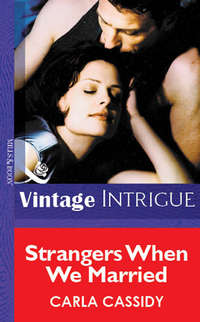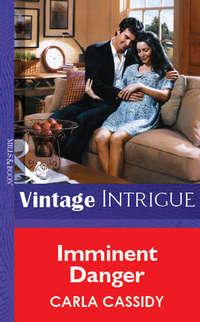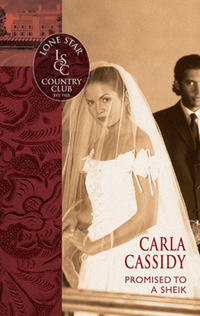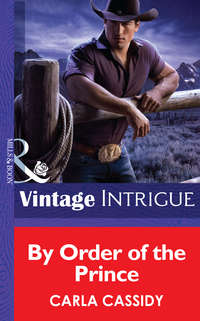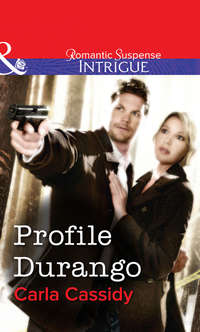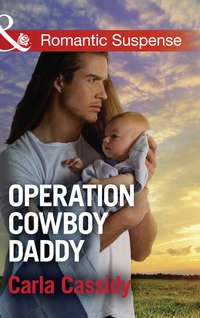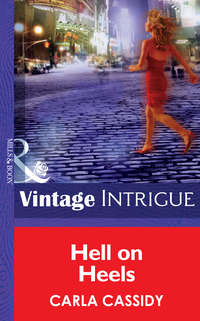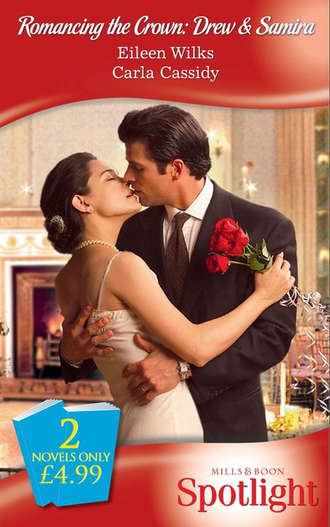
Полная версия
Romancing The Crown: Drew and Samira: Her Lord Protector
She grinned. ‘‘You and I are being discussed and speculated about with almost as much interest as is given to what all this cost. And that, you know, is a matter of great importance. You noticed the compliment Signora Lorenzi paid just now to the florist who provided the flowers?’’
‘‘You told her you would pass it on to someone named Adrian.’’
‘‘That was to let her know that Signora Serminio probably got her floral arrangements wholesale. Adrian is a florist. He is also a second cousin of Signor Anaghnostopoulus, our host. I’m expected to pass on some of these details, since my shop is across the street from Serminio’s.’’
‘‘Who sells sunscreen.’’ A smile tugged at the corner of his mouth. ‘‘You didn’t share these important financial details about your neighbors with me.’’
‘‘Somehow I didn’t think you’d be interested.’’ She smiled, shrugged. ‘‘We’re a nation of merchants. It’s how we’ve survived all these years in spite of conquerors, imperialists, Nazis—and now, terrorists. We bend, we accommodate, we compete with each other and we help each other. It’s why we’ve been content to remain a monarchy. Let the Sebastianis do most of the hard work of government and leave the rest of us free to pay attention to important matters.’’
‘‘Such as how much Signora Serminio paid for her goddaughter’s fioreanno?’’
‘‘Exactly. Oh, look—we have to be quiet now. Speech time.’’
The father spoke first. He had a long list of people to thank, rather like an actor at the Oscars who feels obliged to mention every member of his family, every friend and friendly influence—including, but far from limited to, his third-grade teacher—as well as the Almighty and various business acquaintances. Then the priest blessed the young girl, her family and all those attending, closing with a special prayer for the guidance of the king in ‘‘these difficult times.’’ At last, to everyone’s relief, the talking was over and the band started playing once more. Some of the guests began drifting across the street for the dancing, while others headed for the bar.
Drew commented, ‘‘The priest is Orthodox.’’
‘‘Of course. The family is Greek.’’
‘‘But many of the guests are Catholic. That’s typical of Montebello, though, isn’t it? There isn’t much religious friction here, though you have Orthodox, Catholic and Protestant churches. Not to mention the mosques.’’
‘‘And if we could get our Muslim neighbors to come to more fioreanni, there would be even less strife. They’re wary of the dancing and the naked faces and opinions of the women at these affairs, but I have been to fioreanni that had Muslim guests. This is how we make it work, you see. We remind ourselves how much we have in common, how much we need each other.’’
Drew was frowning, but not in skepticism. More as if he was trying to understand. ‘‘By giving coming-out parties for your young women?’’
‘‘All this—’’ she spread her arm, indicating the café, the piazza, the people ‘‘—it’s really about connections. I’ve made you think the money is what counts, but by itself the cost of a fioreanno means nothing. Anyone who spends enough could give a good party, but that alone wouldn’t make them an important family, one that other families want their sons or daughters to marry into. It’s the connections that matter.’’
‘‘So while the cost of the flowers is interesting, the second cousin who’s a florist is more important?’’
She smiled, pleased with him. ‘‘Exactly. This, tonight, is how Signor Anaghnostopoulus says, ‘Look at my family. We are stable, settled. We know how things work. We know these people in the merchant community, these in government, these in the Church. And maybe, if you are lucky, your family can join with mine through this, my beautiful daughter, and our connections will grow and we will all prosper.’’’
For the first time that evening he touched her deliberately, taking her hand. He played idly with her fingers and looked at her, and she wondered if he could feel what happened to her pulse the way she’d felt his change earlier. ‘‘Did you have a grand fioreanno when you were sixteen, with fresh flowers on every table?’’
She didn’t let her smile slip. ‘‘I’m afraid not. A father is necessary for the occasion, you see, even though it’s the godmother who gives the party.’’
He still held her hand. ‘‘You are an orphan?’’
What she saw in his face wasn’t as trite as sympathy—more like a vast, incurious acceptance, as if he couldn’t be moved to shock, pity or any intrusive emotion, no matter what she said. As if it was safe to tell him anything. ‘‘My mother never married. I don’t know who my father was. And that,’’ she said, smiling brightly, ‘‘is one of those things that everyone knows, but such old history it won’t have been part of many of the stories told tonight.’’
‘‘I think we’ve exchanged enough stories for now.’’ He stood and drew her to her feet. ‘‘I’d very much like to dance with you.’’
* * *
The moon was mostly full, a child’s lopsided white circle painted on a charcoal sky. Cyprus and oak filtered the lights and sounds of the street on three sides of the piazza. On the fourth side the band stood on its modest platform with the curved wall at the back, designed to catch and reflect the music outward. Later, when mostly young people remained, they would probably try out more modern music; now they played the old songs. So far, the trumpet player was behaving himself.
The dancers were all ages, from nine to ninety. Drew led Rose to the edge of the square, where she slipped into his arms as easily as if they had danced together a hundred times before. A waltz was playing…and oh, the man knew how to waltz.
He held her correctly, one hand warm at her waist, the other clasping hers lightly, with the prescribed distance between their bodies. And he looked into her eyes as they moved in smooth, swooping circles, their bodies joined by movement rather than touch, the lilt of the music riffed now and then by laughter.
Did he know how seductive this graceful courting was, when her body learned to follow his while still separate and sovereign, so that each turn became an act of surrender?
She smiled up into his eyes. He knew.
After the waltz came a lively country tune that invited the dancers to romp. To her surprise and delight, after watching the others for a moment he abandoned formality and spun her around the crowded square as if he’d been dancing like this since childhood. There followed another quick country dance, which left her breathless and happy.
Then they played ‘‘Moon River,’’ and he pulled her close.
Her head fitted his shoulder perfectly. His shirt smelled faintly of starch. His skin had its own perfume, which passed like a secret through her senses, and her heart beat fast and hard.
So did his.
They circled slowly now, gliding together in a dark, closed space bounded by music. She felt the movement of his legs and the way the linen moved over his body as she stroked her hands from his shoulders to his waist. The skin beneath the thin cloth was heated, slightly damp. Already, an ache had begun, growing larger as they drifted—easy, langorous, important.
It didn’t occur to Rose to hide what she felt from him. She was sweetly, dreamily aroused. She wanted him to know. She lifted her head so she could look in his eyes and let him see hers.
What she saw on his face wasn’t sweet or dreamy. His jaw was taut. His focus on her was so intense, so complete, her breath caught in her throat. He lifted a hand and traced the side of her face with his fingers carefully, as if all he knew of the world must be drawn to him through his fingertips. She shivered. He bent his head, and she glimpsed his eyes before her own closed—the lids heavy, the pupils dark but gleaming from some fugitive reflection.
His lips touched hers, a quick shock of feeling, then retreated. His fingers tightened along the side of her face and his mouth came back, firmly this time, to join hers.
Heat. A rushing—in her head as her blood answered a new tide, making her ears echo the ocean like shells. In her body, as if her center were suddenly lost and, dizzy, she spun without moving. His tongue painted promises on her lips, her hands dug into his waist…a sudden tremor in his left hand, the feel of her skin beneath the fingertips of his right hand, need growing, loins aching, flesh rising to press against cloth, her heart pounding, his heart pounding, our hearts—
Hands dug into her shoulders, thrusting her back. Air moved, cool, along her heated body. And she stood alone in the small space left them by the shifting bodies of the other dancers. Alone, body and mind and heart, staring at his face, where there was no expression at all. And at his eyes, where she saw a deep and consuming horror.
Drew turned and started walking. It wasn’t a conscious decision. There was nothing in him capable of reasoning or deciding at that moment. He walked, that was all. Away. Quickly.
There were too many people. People everywhere, their voices and faces blurring into a crowd—pressure he couldn’t tolerate. Instinctively he sought darkness, privacy. A moment later trees loomed around him, and as the press of people grew less, thought began to return. He remembered to watch for traffic when he crossed the street, almost running now.
No headache, not yet. But it would come. The sliding disorientation, the loss of reality—there was no mistaking that. It had hit while he was kissing her, dear God, while she was in his arms….
But the rest of it hadn’t hit. His steps slowed, stopped. For the first time the spell, once begun, hadn’t taken its terrible course. He was in control, body and mind. In control, and standing in a dark, dead-end alley beside a garbage can. Somewhere behind him, the band swung into a cheerful rendition of ‘‘Tequila.’’
The world hadn’t left him.
Neither, he realized as footsteps approached and stopped, had she.
‘‘Drew?’’
What the hell did he say? Excuse me, didn’t mean to run off, but I just remembered I left the water running somewhere?
God. He ran a hand over his head, front to back, ending with his fingers squeezing the base of his skull as if he could press out an answer.
His head didn’t hurt. The terrible exhaustion wasn’t hovering, waiting to drag him down. He was pathetically grateful to be spared that, along with the rest of it, even if he had no idea why he’d been spared. But he couldn’t try to figure it out now. Now, he thought, bitterly aware of the irony, he had to persuade Rose he wasn’t crazy.
‘‘I’m sorry,’’ he said without turning. ‘‘I don’t have a good explanation.’’
‘‘You don’t have to explain. I’ve never… It scared me, too.’’
Relief poured in. She thought he’d been frightened by—what? Passion? Excessive emotion? It didn’t… No, he realized, shamed. It did matter. If she’d been frightened by what she felt when they kissed, he couldn’t let her go on thinking he felt…whatever she thought he felt. ‘‘Rose,’’ he said, turning, unsure how to make himself clear without hurting her.
She stood three feet away. Worry or strain wrinkled her forehead. ‘‘Why didn’t you tell me you’re an empath?’’
He stared. She was as crazy as he was.
‘‘Oh. Oh, Lord.’’ The hand that pushed her hair back was shaky, but her mouth shaped a rueful smile. ‘‘You haven’t the foggiest idea what I’m talking about, do you? I don’t suppose you believe in all that psychic crap.’’
Carefully he said, ‘‘I try to keep an open mind.’’
For some reason that set her off. She laughed so hard it doubled her over. He was about to grab her, thinking she was hysterical, when she straightened, gasping. ‘‘An open mind. Yes, I’m sure you think so.’’ One last chuckle escaped, then, when he reached for her, she stepped back. ‘‘Hands off, I think, for now. Things have changed.’’
He took a deep breath. Still no headache. Otherwise, things were pretty much all mucked up. ‘‘All right. If that’s how you want it.’’
‘‘If I knew what…’’ She sighed. ‘‘Never mind. I’m sure you think I’m a nutcase. Maybe it’s time we talked about it—about my claim to be psychic, I mean.’’
He wouldn’t have a better opening. ‘‘Maybe we should. But not here. Let’s go back to the party.’’ Where they’d be surrounded by plenty of nosy people.
His head might not hurt, but he damned sure ached elsewhere. He would need all the help he could get to follow her blasted hands-off policy.
Chapter 7
They made their way back to the café in silence. A light mist began to drift through the air, the droplets fine as dust motes. The dampness didn’t discourage the dancers in the piazza, but it had chased those at the sidewalk tables into the shelter. The little café was crowded, loud with cheery voices. Roberts was there. He looked relieved when he saw Drew. Drew was relieved, too, though for a different reason. Apparently his bodyguard had lost him in the crowd. He hadn’t seen Drew race off like a frightened rabbit.
They didn’t go in. There was a tiny bistro three doors down, away from the noise and curious faces. Music and mist floated in the open door, but the narrow room was dark and quiet, with lights over the bar and candles on the tables. A few customers were talking, their hands flying in occasional counterpoint or emphasis.
Drew went to the bar for their drinks, leaving Rose staring moodily at the fat, red candle on the table. Roberts found a spot at the end of the bar.
Drew wondered if the story of his flight from the dancing was making the rounds back at the café. So far, he’d bungled the evening badly. He wanted to get this next part right, but wasn’t sure how to proceed.
Rose was still studying the candle as if it held all sorts of secrets and solutions when he returned. She didn’t look up when he set her wine in front of her, sat down and spoke. ‘‘I mentioned my cousin Lorenzo earlier.’’
‘‘You said something about having a message from him.’’
‘‘He’d like you to work with him.’’
Her head jerked up. ‘‘What?’’
‘‘Police departments work with psychics sometimes. He needs leads. He’s willing to try this.’’
‘‘I’m not.’’
She sounded very definite. Drew studied her. Her lids were lowered, the lush eyelashes screening whatever was happening in those expressive eyes. She started digging little fissures in the softened rim of the candle with a fingernail, letting the melted wax escape in lavalike runnels. As the pool of wax went down, exposing the wick, the flame grew larger. ‘‘Why not?’’ he asked.
‘‘You don’t know what you’re asking.’’ Now her eyes lifted, meeting his. Her eyebrows were drawn in an uncompromising frown.
‘‘Explain it to me.’’
‘‘Just like that?’’ She gave a half laugh. ‘‘Drew, you don’t even believe in psychic phenomena.’’
‘‘My belief or lack of it doesn’t determine reality. People once believed, based on good evidence, that the world was flat.’’
‘‘That open mind of yours.’’ This time she didn’t laugh. She just looked tired. ‘‘Maybe you’re willing to change your mind if I can prove you wrong, but I’m not interested in proving anything.’’
‘‘I’m not asking you to. Listen.’’ Impatient, he claimed her hand. Her palm was very warm. ‘‘If Lorenzo is willing to give you a chance, why can’t you try? Don’t you want to see the bastards caught?’’
‘‘Oh, unfair. Of course I want them caught. But I’m not…’’ She sighed and pulled her hand back. ‘‘I’ll try to explain. I doubt you’ll accept what I say, but I’ll try. First, I use the word psychic because that’s the term you understand, but I was raised to think of myself as Gifted.’’
‘‘I see.’’
She chuckled. ‘‘No, you don’t. You’re trying not to let on that you think I’m a few bubbles shy of a full bath, and my family must be weird, too.’’
‘‘I can accept that what you say is fact to you.’’
‘‘Good enough.’’ She sipped her wine, her brows drawn slightly in thought. ‘‘I won’t begin at the beginning, because that goes back a little too far—more than twenty generations. The women in my family have always been Gifted, you see, some only slightly, some…quite strongly. Of course we aren’t the only ones. The Gifts—psychic abilities —appear in people all over the world, and I suspect that almost everyone has some trace of them. But because they have appeared so consistently and strongly in those of my blood, they have been studied. We know a great deal about how these abilities work, how to nurture and train them. And how to protect ourselves from them.’’
‘‘There is some danger in these, ah, Gifts?’’
‘‘The stronger the Gift, the greater the danger. Especially if the Gifted is unaware and untrained.’’ The delicate skin around her eyes tightened and she looked away. Once more she started playing with the softened candle wax, this time pushing the sides in toward the wick, forcing the melted wax higher on the wick. The flame retreated, diminished, until it was a small, stubborn bubble of fire, nearly drowned.
It was obvious she believed utterly in what she was saying. Drew thought of the fioreanno she hadn’t had, the father she’d never known and the way she’d smiled so brightly when she told him her mother had never been married. His throat ached with pity. There was a great deal she hadn’t said, a great deal he knew from Lorenzo that he had no business knowing. Such as how her mother died.
Yet she understood and applauded the strengths of the society that had made her an outsider. Was it surprising, then, that she would cling so fiercely to a set of beliefs, however bizarre, that gave her a heritage? That sense of belonging may have been what gave her the strength to reject bitterness.
‘‘You’re trained, though, I take it?’’ he said carefully. ‘‘And certainly not unaware. Wouldn’t that lessen the danger?’’
‘‘Yes, but…the nature of the danger varies according to the nature of the Gift, which is fourfold—what you would call telepathy, empathy, healing and prophecy. We name them Air, Water, Earth and Fire. My Gift is Fire. I see visions.’’
He didn’t want to know any more. The tally of her delusions was already troubling. But she posed a threat to people who liked to deal with their problems by killing. He had to persuade her to cooperate with Lorenzo. ‘‘And what is the nature of your danger?’’
She raised her eyes to his. Some trick of the light reflected the tiny candle flame there, twinned. ‘‘Burning, of course,’’ she said. Suddenly she breached the candle wall with one finger, spilling the liquid wax. The flame leaped high, higher. And she set her hand, flat-palmed, atop that flame.
He seized her wrist and yanked her hand away.
The wick smoked, dead and black, filling the air with the pungent scent of a just-snuffed candle. He turned her hand over.
Her palm was unmarked. There was no reddened spot, no sooty residue. Nothing.
His gaze flew to her face. Her expression was clear, remote, smiling. ‘‘A little fire like that can’t hurt me. It’s the big ones I fear.’’
It had been a trick, of course. The candle must have been extinguished before her palm touched it. ‘‘That’s why you won’t help?’’
She pulled her hand away. ‘‘I can’t help. From what I can tell, psychics who work with the police—the ones who aren’t charlatans, that is—are empaths or telepaths. I’m not. I can’t slide inside a terrorist’s mind that way.’’
She was too calm. He didn’t think she was lying, exactly, but she was holding something back. ‘‘What aren’t you telling me?’’
‘‘All sorts of things. It would take rather longer than you and I have to pass on the accumulated lore of the last thousand years.’’ She stood. ‘‘I think, for me, the party’s over. It’s time I went home.’’
He shoved his chair back and stood, too, reaching across the table to grab her wrist—as if he had to anchor her to keep her from vanishing as suddenly as the snuffed candle flame. ‘‘A thousand years?’’
When she lifted her eyebrows that way, she reminded him of his grandmother, who was capable of depressing pretension at twenty paces with just such an expression. ‘‘Roughly that. Twenty-seven generations, to be precise, traced through the female line. I could recite my begats for you.’’
‘‘Twenty-seven generations’ worth?’’
‘‘I had to memorize them as a child. Look, Drew, this evening hasn’t gone as either of us intended. I think it’s best I saw myself home.’’
‘‘That isn’t happening.’’ He moved around the table, transferring his grip from her wrist to her hand. ‘‘Does your aunt believe all this, too?’’
‘‘Of course. She taught me a good deal of the lore.’’ Rose didn’t protest his hold on her hand as they left the bistro. She ignored it.
The mist had deepened, thick enough now to dampen his face when he stepped outside. Overhead, the sky was lost in the drizzling darkness; on the street, lights from shops, cafés, the piazza and lampposts were draped in gauzy drifts. It was still early, barely ten o’clock, and the weather didn’t seem to have discouraged anyone. The sidewalk held plenty of others with their own goals for the night.
Drew wondered at himself. Why did he keep seizing her hand? It would have been reassuring to put the urge down to desire, but it wasn’t a woman’s hand he usually wanted to hold. ‘‘Does your aunt have one of these Gifts?’’
‘‘Yes, though hers isn’t strong. She’s Earth-Gifted—a healer, among other things.’’
‘‘What other things?’’
‘‘Oh, children and puppies adore her, plants grow for her and she loves to cook. She can take a headache away, ease a fever or speed the healing of cuts, breaks, burns, scrapes or scratches. She also acts as my…but that wouldn’t be of interest to a confirmed skeptic like you.’’
The way she cut off whatever she’d been about to say left Drew a bread-crumb trail he intended to follow. When they reached the street corner, though, where an awning kept the mist out, he stopped. ‘‘The car’s about four blocks away. Why don’t you wait here while I get it?’’ She’d be safe. He’d glimpsed Roberts in the crowd, hanging back in an effort to be unobtrusive. He’d tell the man to stay with her.
‘‘But there’s no need for that!’’ Rose tipped her face up into the dampness, letting it dew her cheeks. ‘‘This feels good.’’
‘‘Your affinity for fire doesn’t make you dislike getting wet, then.’’
‘‘It doesn’t work that way. I enjoy the ocean.’’ She started walking again, so he kept pace with her.
The street beside them was busy with buses, bicycles, cars and taxicabs, but traffic in Montebello was leisurely compared to the frenzied battle of Italian streets. For the most part the people, too, ambled along with a lack of haste typical of this city, an easy flow of workers in wrinkled cotton, young men in neatly pressed shirts with their arms around women in bright dresses, teens of both sexes in jeans and Reeboks, old men in stiff shoes and black pants, and old women with shawls and full skirts. Here and there he saw a uniform—police or army. Most of the faces held the sun-kissed duskiness of the Mediterranean peoples, though a few were tourist-pale or African-dark. He didn’t see a single umbrella.
‘‘So you like the water?’’ he asked after a moment.
‘‘My family’s lore says that a Fire-Gifted who fears or dislikes water is out of balance. It’s rather like the Chinese system of feng shui, in which the elements have a constructive and a destructive or balancing cycle. Fire without water to cool it becomes purely destructive.’’
‘‘I’ve heard of feng shui,’’ he said neutrally. He wasn’t interested in it, any more than he was in fortune-telling or numerology. But people told him things. ‘‘The astrological signs are divided along similar lines, too, aren’t they? And, ah, what’s it called—the witchcraft religion. It refers to earth, air, fire and water, too, doesn’t it?’’
‘‘Wicca, you mean? There are similarities in most of the mystical or magical systems, probably for the same reason religions all over the world value the same qualities—like love, kindness, courage, loyalty, honesty. Some things are universal. As for astrology… Drew, you don’t believe that nonsense, do you?’’


